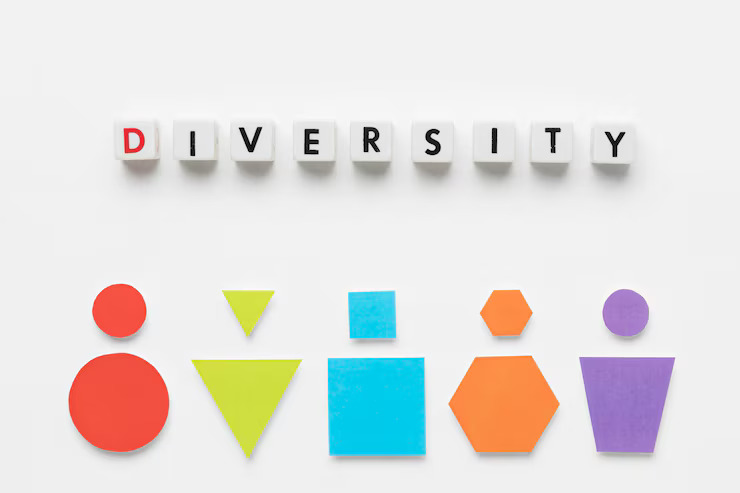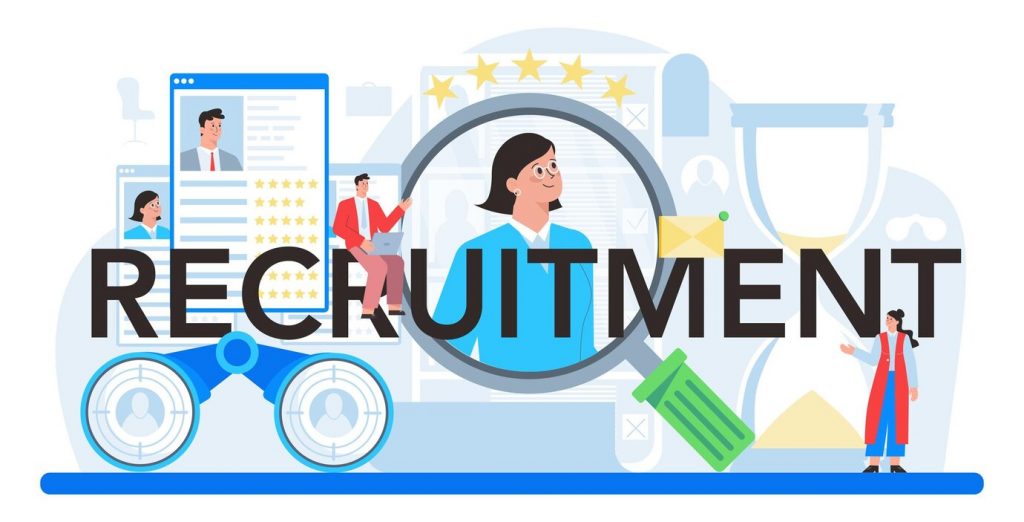Diversity, Equity, and Inclusion (DEI) in hiring is no longer a niche initiative—it’s a strategic imperative. As companies expand across borders, grow remote workforces, and compete in talent-scarce markets, DEI in hiring has become essential to organizational success. The growing demand for inclusive recruitment practices isn’t just driven by social expectations; it’s backed by data, performance, and long-term business resilience. Companies that embed DEI into their talent strategies attract better talent, improve retention, and build stronger, more innovative teams.
A McKinsey study found that companies in the top quartile for gender diversity on executive teams were 25% more likely to have above-average profitability than those in the bottom quartile. Moreover, inclusive companies are 1.7 times more likely to be innovation leaders in their market. DEI isn’t just the right thing to do—it’s the smart thing to do.
What is DEI in Hiring?
At its core, DEI in hiring refers to building recruitment strategies that intentionally foster Diversity, Equity, and Inclusion:
- Diversity means representation across demographics such as race, gender, age, socioeconomic background, and more.
- Equity focuses on creating fair opportunities by removing systemic barriers and ensuring all candidates have access to the same support and evaluation.
- Inclusion ensures all individuals feel valued and supported throughout the hiring journey and beyond.
Also Read: How to Integrate AI Recruitment Platforms with HR Systems?
Diverse workforce recruitment strategies go beyond headcount metrics. They require deliberate design across job descriptions, candidate sourcing, screening, interviewing, and final selection. Companies embracing DEI in hiring report up to 22% lower turnover (LinkedIn Workplace Learning Report) and higher employee satisfaction.
The Role of Inclusive Recruitment Practices Inclusive recruitment practices dismantle the hidden barriers that keep underrepresented candidates from advancing. From gender-coded language in job descriptions to homogeneous interview panels, many traditional recruitment elements unintentionally filter out great candidates.
To fix this:
- Use inclusive language in job postings. Tools like Textio flag biased wording that discourages marginalized groups from applying.
- Ensure diverse representation on interview panels to reduce cultural blind spots.
- Standardize interview questions and scoring criteria to level the playing field.
- Optimize job board strategies by sourcing from platforms that focus on diverse talent, like Jopwell, PowerToFly, and Fairygodboss.
Equity in employment begins at the first touchpoint. JobTwine supports recruiters with bias-aware assessment frameworks and customizable interview structures that promote fairness at scale.
DEI Hiring Strategies That Work Winning companies don’t treat DEI as a standalone initiative—they integrate it into every step of the hiring funnel:
- Inclusive Job Ads: Remove requirements that aren’t essential. Research by Harvard Business Review found women apply to jobs only when they meet 100% of criteria, while men apply at 60%.
- Bias-Free Screening: Use structured rubrics and anonymized resume review tools to assess candidates fairly.
- Diversity Analytics: Track representation across applicant stages. Tools like Greenhouse and JobTwine provide DEI dashboards to monitor progress.
- Candidate Experience Audits: Interview diverse candidates about their journey. Feedback loops improve fairness and trust.
A 2022 Deloitte survey showed that 78% of job seekers consider company DEI efforts when evaluating job offers. JobTwine’s structured interview simulations give companies a unique advantage by removing inconsistency and adding accountability at the decision-making level.
Also Read: How JobTwine Simplifies Recruitment with AI Automation?
Overcoming Unconscious Bias in Hiring
Unconscious bias in hiring occurs when recruiters make decisions based on stereotypes or preferences outside conscious awareness. It affects everything from resume reviews to final offers.
Key steps to mitigate it:
- Train hiring teams: Use scenario-based DEI workshops to build awareness.
- Deploy AI tools: Platforms like JobTwine detect biased scoring patterns and highlight inconsistencies in evaluations.
- Anonymize applications: Hide names, photos, and educational institutions in the first screening round.
- Calibrate regularly: Ensure all recruiters are aligned on what “qualified” looks like by scoring mock profiles together.
AI hiring tools must be used carefully. Without checks, AI can replicate existing biases in data. That’s why JobTwine builds explainable AI models, allowing recruiters to understand the “why” behind a recommendation.
Also Read: How Gemini is Transforming the Interview Landscape in 2025
DEI Best Practices in Recruitment
Leading organizations are setting the gold standard for DEI best practices in recruitment:
- Salesforce uses “equality groups” in hiring committees and tracks DEI metrics company-wide.
- Spotify conducts quarterly audits of its talent funnel and adjusts sourcing strategies accordingly.
- Johnson & Johnson embeds DEI KPIs into manager performance reviews to drive accountability.
Common best practices include:
- DEI scorecards for hiring teams
- Inclusion nudges in ATS platforms
- Transparent salary bands to reduce pay inequity
- Inclusive onboarding with mentorship from ERGs (Employee Resource Groups)
Equity in employment doesn’t stop at hiring. It’s a continuous effort tracked through data, culture, and employee voice.
Also Read: Top 7 Benefits of Interview Intelligence for Modern Recruitment
Building an Inclusive Workplace Beyond Hiring
The impact of DEI hiring doesn’t end with the job offer. Inclusive workplaces are cultivated through intentional post-hire strategies:
- Onboarding: Tailor onboarding experiences for diverse hires. Include cultural immersion and mentorship.
- Employee Resource Groups (ERGs): Support belonging and cross-cultural exchange.
- Ongoing Feedback: Pulse surveys and listening sessions reveal inclusion gaps.
- Career Progression Equity: Use data to identify if certain groups are underrepresented in promotions.
For example, HubSpot’s post-hire inclusion programs led to a 14% increase in underrepresented employees feeling like they belong—a key predictor of performance and retention.
JobTwine helps organizations measure post-hire satisfaction and performance patterns through analytics that spotlight equity gaps early.
Also Read: The Role of Interview Intelligence in Reducing Hiring Bias
Final Thoughts
DEI in hiring is not a trend—it’s a long-term investment in organizational excellence. When businesses embed Diversity, Equity, and Inclusion into every layer of their hiring strategy, they don’t just check a box—they build better companies. The benefits are tangible: faster innovation, better decision-making, deeper customer insight, and stronger brand trust.
Platforms like JobTwine are accelerating this shift, offering the infrastructure for equitable hiring at scale. Whether you’re just starting or evolving your DEI playbook, now is the time to invest.
Frequently Asked Questions:
1. What is DEI in hiring?
DEI in hiring refers to recruitment practices that promote Diversity (representation), Equity (fairness), and Inclusion (belonging) at all stages of the talent funnel.
2. How can companies create more inclusive job descriptions?
By using gender-neutral and bias-free language, avoiding unnecessary requirements, and ensuring clarity. Tools like Textio or JobTwine’s templates can help.
3. What are examples of DEI hiring strategies?
Using anonymized resume screening, structured interviews, diverse hiring panels, and tracking diversity data across the pipeline.
4. How does unconscious bias affect hiring?
It can lead to unfair evaluations based on stereotypes, reducing diversity and weakening talent quality.
5. How can JobTwine help with DEI hiring?
JobTwine provides AI-powered interview simulations, structured evaluation tools, and analytics dashboards to help companies build fair, inclusive, and high-performing hiring processes.




